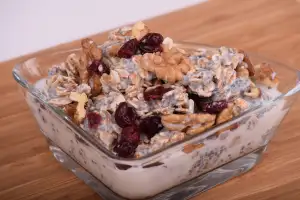Cornish Hens: Unleash the Flavorful Delights of these Petite Poultry Marvels

Cornish Hens: Unleash the Flavorful Delights of these Petite Poultry Marvels
Cornish hens, also known as Rock Cornish game hens, are a delightful and flavorful alternative to traditional chicken. These petite poultry marvels are a smaller breed of chicken, weighing around 2 pounds each. Despite their small size, Cornish hens pack a punch when it comes to taste and tenderness.
With their succulent meat and delicate texture, Cornish hens have gained popularity among food enthusiasts and home cooks alike. They offer a unique dining experience that is both elegant and satisfying. Whether you're hosting a dinner party or simply looking to elevate your weeknight meals, Cornish hens are sure to impress.
In this article, we will explore the history and origin of Cornish hens, discuss their nutritional value, provide tips on selecting and preparing them, share delicious recipes that showcase their flavor, delve into various cooking techniques for optimal results, offer serving suggestions, and provide tips and tricks for perfectly cooked Cornish hens.
Get ready to embark on a culinary adventure with these petite poultry marvels as we uncover the secrets to unlocking their delightful flavor.
History and Origin of Cornish Hens
Cornish Hens have a fascinating history that dates back to the early 20th century in Cornwall, England. These petite poultry marvels were originally bred from a cross between Cornish gamecocks and Plymouth Rock hens. The goal was to create a bird with exceptional meat quality and flavor. Their popularity quickly spread, and they made their way to America in the 1950s. Today, Cornish Hens are cherished for their tender meat and rich taste, making them a favorite choice for special occasions and gourmet meals.
Nutritional Value of Cornish Hens
Cornish hens not only offer a delightful flavor but also provide a range of nutritional benefits. These petite poultry marvels are packed with protein, making them an excellent choice for those looking to increase their protein intake. A 4-ounce serving of Cornish hen contains about 30 grams of protein, which is essential for muscle growth and repair.
In addition to protein, Cornish hens are a good source of vitamins and minerals. They contain B vitamins such as niacin, thiamin, and riboflavin, which play a crucial role in energy production and maintaining healthy skin. These hens also provide minerals like iron, zinc, and phosphorus that are necessary for various bodily functions.
One of the advantages of Cornish hens is that they are lower in fat compared to other poultry options. This makes them a healthier choice for individuals watching their fat intake. Moreover, Cornish hens have less saturated fat than chicken or turkey, making them heart-friendly.
Another nutritional advantage of Cornish hens is that they are rich in selenium. Selenium is an essential mineral that acts as an antioxidant and supports the immune system. It also plays a vital role in thyroid function and helps protect against certain types of cancer.
When it comes to calories, Cornish hens are relatively low in comparison to larger poultry options like chicken or turkey. This makes them a suitable choice for individuals who want to enjoy delicious poultry without consuming excessive calories.
Overall, Cornish hens offer not only a flavorful dining experience but also bring several nutritional benefits to the table. With their high protein content and array of vitamins and minerals, these petite poultry marvels can be enjoyed as part of a balanced diet for those seeking both taste and nutrition.
Selecting and Preparing Cornish Hens
When selecting Cornish hens, look for birds that are plump and have a creamy white or pale yellow skin. The flesh should be firm and moist, with no signs of discoloration or strong odor. Choose hens that weigh between 1 to 2 pounds for optimal tenderness and flavor.
Before cooking, it's important to properly prepare the Cornish hens. Start by removing any giblets or organs from the cavity. Rinse the hens under cold water and pat them dry with paper towels.
To enhance the flavor, consider marinating the hens in a mixture of herbs, spices, and your choice of liquid such as citrus juice or wine. Allow them to marinate for at least 30 minutes or up to overnight in the refrigerator.
For an extra crispy skin, you can also try air-drying the hens in the refrigerator uncovered for a few hours before cooking. This helps remove excess moisture from the skin, resulting in a deliciously crisp texture.
When preparing Cornish hens for roasting, trussing is optional but can help promote even cooking. Simply tie the legs together with kitchen twine and tuck the wings behind the back.
By carefully selecting and preparing your Cornish hens, you'll ensure that they are ready to deliver their full potential of flavor and tenderness when cooked.
Delicious Cornish Hen Recipes
1. Herb-Roasted Cornish Hens: Rub the hens with a mixture of fresh herbs, garlic, olive oil, salt, and pepper. Roast in the oven until golden brown and cooked through. Serve with roasted vegetables for a flavorful and satisfying meal.
2. Lemon-Garlic Cornish Hens: Marinate the hens in a mixture of lemon juice, garlic, olive oil, salt, and pepper. Grill or roast until tender and juicy. The tangy citrus flavor pairs perfectly with the succulent meat.
3. Cranberry-Glazed Cornish Hens: Brush the hens with a sweet and tangy cranberry glaze made from cranberry sauce, orange juice, honey, and spices. Bake until caramelized and baste occasionally for an irresistible burst of flavors.
4. Asian-Inspired Cornish Hens: Create a marinade using soy sauce, ginger, garlic, sesame oil, and honey. Let the hens marinate for a few hours before grilling or baking. Serve with steamed rice and stir-fried vegetables for an Asian-inspired feast.
5. Stuffed Cornish Hens: Fill the cavity of each hen with a delicious stuffing made from breadcrumbs, sautéed onions and celery, dried fruits like cranberries or apricots, herbs, and chicken broth. Roast until both the hen and stuffing are cooked to perfection.
These recipes showcase the versatility of Cornish hens by incorporating different flavors from around the world. Experiment with seasonings and ingredients to create your own unique culinary masterpieces using these delightful petite poultry marvels!
Cooking Techniques for Cornish Hens
When it comes to cooking techniques for Cornish hens, there are several options to choose from. One popular method is roasting, which helps to bring out the rich flavors of the meat. To roast a Cornish hen, preheat your oven to 425°F (220°C) and place the hens on a rack in a roasting pan. Rub them with olive oil and season with salt, pepper, and any desired herbs or spices. Roast for about 45-55 minutes until the skin is golden brown and crispy.
Another technique is grilling, which adds a smoky flavor to the hens. Start by preheating your grill to medium-high heat. Season the hens with salt, pepper, and your favorite marinade or spice rub. Place them on the grill and cook for about 10-15 minutes per side until they reach an internal temperature of 165°F (74°C).
For those who prefer a quicker cooking method, you can also try pan-searing the hens. Heat some oil in a skillet over medium-high heat and sear the hens on both sides until they are golden brown. Then transfer them to a preheated oven at 375°F (190°C) and bake for about 20-25 minutes until cooked through.
No matter which cooking technique you choose, it's important to use a meat thermometer to ensure that the hens are cooked thoroughly but not overdone. This will help you achieve tender and juicy meat every time.
Experimenting with different cooking techniques can add variety to your Cornish hen dishes and allow you to discover new flavors and textures. So go ahead, unleash your culinary creativity and enjoy these petite poultry marvels in all their delicious glory!
Serving Suggestions for Cornish Hens
When it comes to serving Cornish Hens, the possibilities are endless. These petite poultry marvels can be enjoyed in a variety of ways, depending on your taste and preferences. One classic option is to serve them whole, with each person receiving their own individual hen. This not only makes for an impressive presentation but also allows everyone to savor the full flavor of the bird.
Another popular serving suggestion is to carve the Cornish Hens into quarters or halves before plating. This allows for easier portion control and can be a great option when serving a larger group. The tender meat of the hens pairs well with a variety of side dishes such as roasted vegetables, mashed potatoes, or a fresh salad.
For those looking for a more elegant presentation, consider deboning the Cornish Hens and using the meat in different recipes. The flavorful meat can be used in salads, sandwiches, or even as a topping for pizzas or flatbreads.
Regardless of how you choose to serve them, don't forget about the delicious pan juices that are created during cooking. These juices are packed with flavor and can be used to make a rich gravy or sauce to accompany your Cornish Hens.
Whether you're hosting a dinner party or simply enjoying a special meal at home, serving Cornish Hens is sure to impress your guests and elevate any dining experience. So go ahead, unleash the flavorful delights of these petite poultry marvels and create memorable culinary moments.
Tips and Tricks for Perfectly Cooked Cornish Hens
When it comes to cooking Cornish hens, there are a few tips and tricks that can help ensure they turn out perfectly every time. First, make sure to properly season the hens with salt, pepper, and any other desired spices before cooking. This will enhance the flavor of the meat.
To keep the hens moist and tender, baste them regularly during the cooking process. This can be done by spooning pan juices or melted butter over the hens every 15-20 minutes. Basting will help prevent them from drying out.
Another important tip is to use a meat thermometer to check for doneness. Insert the thermometer into the thickest part of the hen's thigh without touching bone. The internal temperature should reach 165°F (74°C) for safe consumption.
For a crispy skin, increase the oven temperature to high or broil for the last few minutes of cooking. Keep an eye on them as they can quickly burn under high heat.
Lastly, allow the cooked hens to rest for about 10 minutes before serving. This allows the juices to redistribute throughout the meat and ensures a more flavorful and succulent eating experience.
By following these tips and tricks, you'll be able to enjoy perfectly cooked Cornish hens that are juicy, flavorful, and sure to impress your guests at any meal.
In conclusion, Cornish hens are a delightful addition to any culinary adventure. Their tender meat and rich flavor make them a true delicacy. Whether you choose to roast, grill, or braise them, the result is always a mouthwatering dish that will impress your guests. With their petite size, they are perfect for individual servings or elegant dinner parties. So go ahead and unleash the flavorful delights of Cornish hens in your kitchen. Your taste buds will thank you!
Published: 06. 12. 2023
Category: Food



